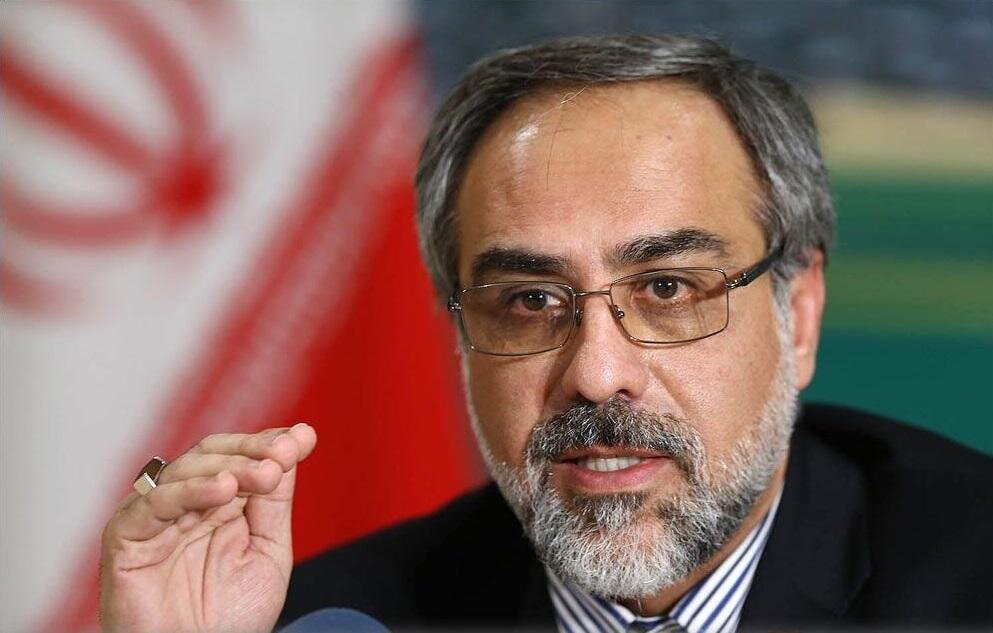‘Failure to join FATF will limit Iran’s economic interaction’

TEHRAN - Deputy Chairman of the Parliament National Security and Foreign Policy Committee Kamal Dehghani has said that failure to join the Financial Action Task Force (FATF) will limit Iran’s economic interaction with the world.
“Definitely, the Expediency Council has prioritized national interests, because according to experts, joining the convention will solve part of problems we are facing; on the other hand, if we do not join it, our economic interaction with the world will be very limited,” he told ISNA in an interview published on Sunday.
Abdolhossein Sasan, a political and economic analyst, told IRNA in an interview published on November 25 that refusing to join the FATF will block Iran’s financial interaction with other countries.
“Iran is now at a very important juncture in comparison to past years. I believe we can improve our economic situation with making right choices and avoid moving towards isolation,” he said.
Gholamreza Mesbahi-Moghadam, a member of the Expediency Council, has said that the council has set aside studying the Palermo bill, which its ratification along the CFT are needed for joining the FATF.
Talking to the Mehr news agency in an interview in November, he said since a one-year time by the council to assess the pros and cons of Palermo with the “country’s expediency” has ended its study is actually out of question.
Mesbahi-Moghadam added, “The deadline for the Expediency Council to study CFT has not passed yet.”
The overall atmosphere in the Expediency Council is against approving the FATF. The opposition to ratifying the FATF rose after the abrogation of the 2015 nuclear deal by the United States and the return of sanctions.
Mesbahi-Moghadam, a cleric trained in economy, noted, “In a situation in which the country is under the most severe sanctions, joining such conventions is synonymous with self-inflicted sanctions. In the situation in which the United States seeks to limit the country’s financial relations, it is not beneficial to join institutions like FATF.”
However, Jalal Mahmoudzadeh, an MP representing Mahabad in the parliament, said in November that joining the FATF will reduce effects of sanctions and help economic interaction.
“Foreign investment will increase and economic interaction will expand if Iran joins this international body,” Mahmoudzadeh told IRNA.
The parliament ratified the FATF in October 2018, however the oversight Guardian Council rejected the bill.
Whenever there is a dispute between the parliament and the Guardian Council on a bill it is referred to the Expediency Council for final arbitration.
The Paris-based Financial Action Task Force (FATF) said on October 18 that it has given Iran a final deadline of February 2020 to tighten its laws against money laundering in compliance with the global watchdog’s financial standards.
“If before February 2020, Iran does not enact the Palermo and Terrorist Financing Conventions in line with the FATF Standards, then the FATF will fully lift the suspension of counter-measures and call on its members and urge all jurisdictions to apply effective counter-measures, in line with recommendation 19,” the FATF said in a statement, Reuters reported.
One of the actions Iran is required to take to appease the FATF is to ratify the CFT, the convention combatting the financing of terrorism.
Mesbahi-Moghadam, who served as parliament representative for two four-year terms, had also told ISNA in an interview last month that the council has set aside studies to approve bills related to the FATF.
“Palermo and CFT will help the United States to identify the ways we circumvent the sanctions. We will not tighten sanctions by our own hands,” he remarked.
However, the government is pushing for the approval of the FATF.
Talking in a cabinet meeting October 23, President Hassan Rouhani called on the Expediency Council to approve the FATF related bills.
“It is our pride that we fight terrorists and counter corruption, therefore we should not allow allegations of money laundering against our banking system,” Rouhani stated.
He added, “This hurts our country.”
Mahmoud Vaezi, the presidential chief of staff, said on October 30 that Iran should use the opportunity to join the FATF in order to avoid self-inflicted sanctions.
He said those who oppose joining the FATF should accept the responsibility for their actions.
NA/PA
Leave a Comment